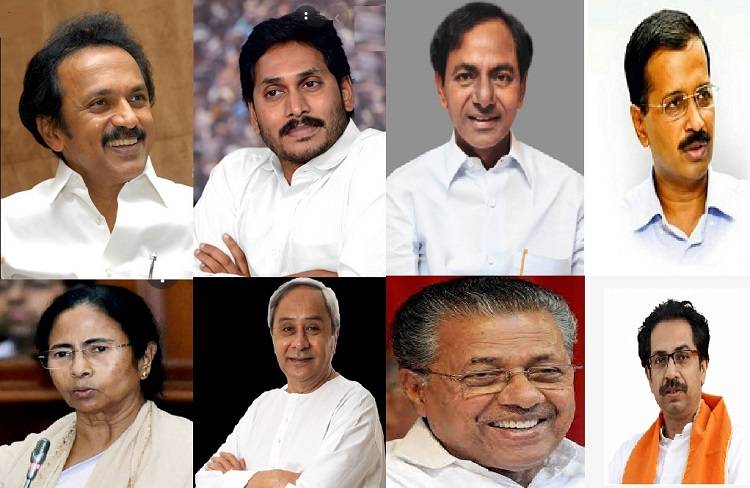Strong Regional Leaders emerging in India.

Cong put pressure on Amarinder Singh making him to resign like BJP put pressure on Yeddyurappa in Karnataka to resign. Both National Parties are keen on change in leadership to quell dissent both within the party and in the public. BJP additionally also removed Vijay Rupani in Gujarat and post elections in Assam elected Himant instead of Sarbananda Sonawal. It also changed Uttarakhand CM twice.
India is witnessing the growth of strong regional leaders and the weakening of leaders in national parties. While regional parties are growing their leaders and parties more stronger with each passing election, national parties leaders are getting weakened with each passing election forcing national parties to change leaders per their internal surveys.
If Kejriwal continues his present governance model, he might have a chance to be CM again in 2025. Telangana, Tamilnadu,West Bengal,Odissa and Andhra Pradesh are expected to return incumbents to power in next elections. They are growing stronger with each passing election and they take their own decisions. They do not wait for someone in Delhi to give a green signal to approve decisions made by them. The Success of any National Front is to carry these strong regional leaders along and not compete with them. Uddhav hackeray has been successfully fighting Covid increasing his popularity in Maharashtra.
The High command culture which permeated congress is permeating bjp as well. The consecutive change of three chief ministers in Uttarakhand a year before elections shrinks leadership responsibility at state level. Many of these state leaders have worked real hard to build the party from scratch and kept the party flag flying high even when other states were lost by national parties. In Andhra Pradesh, the constant change of chief ministers brought Telugu Pride into question and the emergence of Telugu Desam Party.
Due to the downturn owing to Covid,anti-incumbency will be high and it will not be surprising if the leaders in Haryana,Rajasthan,Chattisgarh and other states are also changed soon. Can leaders who have been handpicked by the High Command without any prior administrative experience run the state effectively. Will the team under him respond to him positively because he is not a mass leader but a hand picked leader. Will such a team effectively carry the team to victory. Is the High Command image alone enough for winning votes are key questions parties need to ask themselves. How can a leader who has not emerged from the masses but is a handpick of high command be effective strategist. He will always carry the gratitude burden and loyalty to the one who appointed him. He will not question the decisions made by them even if they are burdensome. A weak leader will do everything to keep himself in power since he is not a acceptable mass leader.
National Parties also have to cope with regional satraps, heavyweights who sit in the state not giving way to next generation and whose only clout is their never flinching loyalty to the high command. The High command prefers such loyal leaders rather than ambitious leaders. Even in Ancient Periods, most of the efforts of the king went into quelling dissent in the feudal lords. The King/Queen's power derived from the loyalty of these lords to the crown. Even when they subdued kingdoms, they settled for royalty to them in lieu of protection and suzerainty acceptance. High Commands are becoming that suzerainty whose leadership cannot be questioned.
In terms of popularity, Yogi Adityanath seems to be having the same popularity which Narendra Modi had when he was chief minister. If Shivraj Chouhand had not lost the election by slight margin, he would not have needed Jyotiraditya Scindia's support in forming the government.
In 2022, Uttar Pradesh, Uttarakhand, Punjab,Goa,Manipur,Himachal Pradesh & Gujarat. BJP has chance to win all the seven elections primarily due to a weak opposition rather than strong incumbent. Punjab, where congress is ruling might witness a change next year with Amarinder's exit.

 Krishna
Krishna 























Comments (0)
Facebook Comments